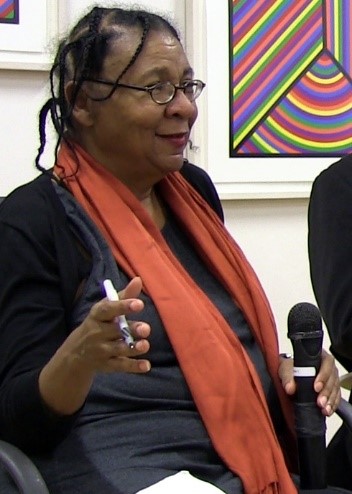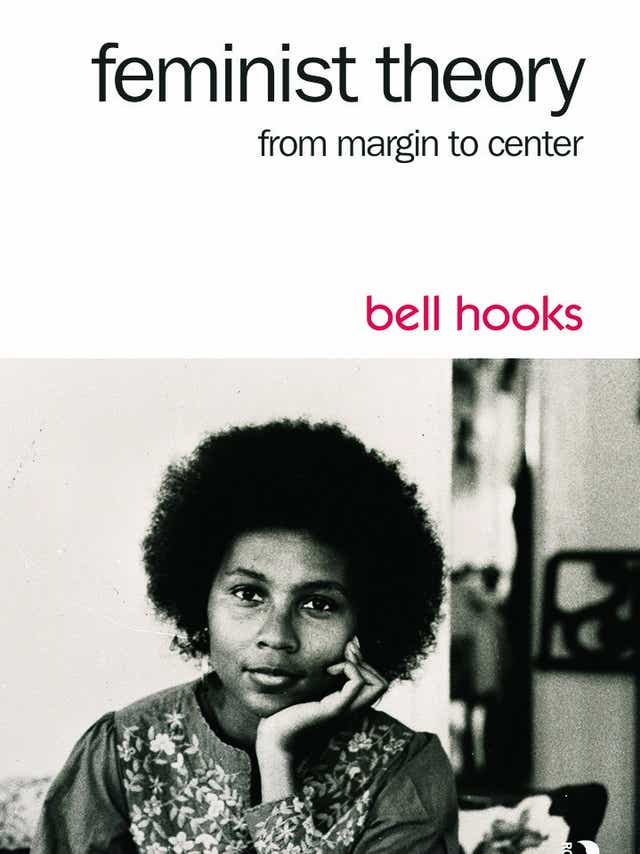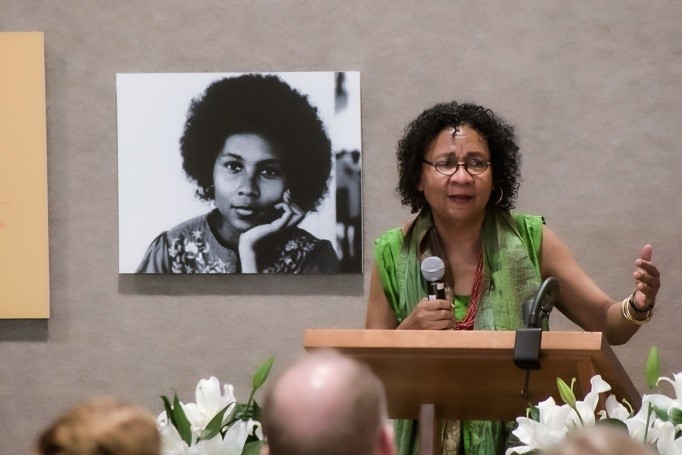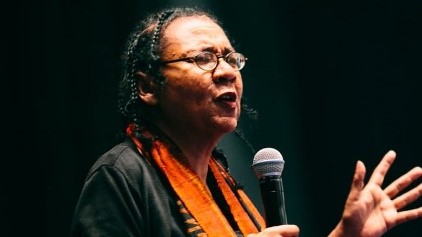Gloria Jean Watkins
Gloria Jean Watkins, better known by her pen name bell hooks, was an American author, professor, feminist, and social activist. The pen name is borrowed from her maternal great-grandmother, Bell Blair Hooks.
1952
2021
USA
African American
1991 – Yearning: Race, Gender, and Cultural Politics: The American Book Awards/ Before Columbus Foundation Award
1994 – bell hooks: The Writer’s Award from the Lila Wallace–Reader’s Digest Fund
2001 – Happy to Be Nappy: NAACP Image Award nominee
2002 – Homemade Love: The Bank Street College Children’s Book of the Year
2002 – Salvation: Black People and Love: Hurston/Wright Legacy Award nominee
2018 – Inducted into the Kentucky Writers Hall of Fame in 2018
2020 – bell hooks: Time 100 Women of the Year
An avid reader, Watkins was educated in racially segregated public schools, later moving to an integrated school in the late 1960s. She graduated from Hopkinsville High School before obtaining her BA in English from Stanford University in 1973, and her MA in English from the University of Wisconsin–Madison in 1976. During this time, Watkins was writing her book Ain’t I a Woman: Black Women and Feminism, which she began at the age of 19 (ca. 1971) and then published in 1981.
In 1983, after several years of teaching and writing, she completed her doctorate in English at the University of California, Santa Cruz, with a dissertation on author Toni Morrison Keeping a Hold on Life: Reading Toni Morrison’s Fiction
She began her academic career in 1976 as an English professor and senior lecturer in ethnic studies at the University of Southern California. During her three years there, Golemics, a Los Angeles publisher, released her first published work, a chapbook of poems titled And There We Wept (1978), written under the name `bell hooks’. She had adopted her maternal great-grandmother’s name as her pen name because, as she later put it, her great-grandmother “was known for her snappy and bold tongue, which I greatly admired”.
In the early 1980s and 1990s, hooks taught at several post-secondary institutions, including the University of California, Santa Cruz, San Francisco State University, Yale (1985 to 1988, as assistant professor of African and Afro American studies and English), Oberlin College (1988 to 1994, as associate professor of American literature and women’s studies), and, beginning in 1994, as distinguished professor of English at City College of New York.
As hooks argued, communication and literacy (the ability to read, write, and think critically) are necessary for the feminist movement because without them people may not grow to recognise gender inequalities in society.
In 2002, hooks gave a commencement speech at Southwestern University. Eschewing the congratulatory mode of traditional commencement speeches, she spoke against what she saw as government sanctioned violence and oppression, and admonished students who she believed went along with such practices. The Austin Chronicle reported that many in the audience booed the speech, though it added that “several graduates passed over the provost to shake her hand or give her a hug.”
In 2004 she joined Berea College as Distinguished Professor in Residence. Her 2008 book, belonging: a culture of place, includes an interview with author Wendell Berry as well as a discussion of her move back to Kentucky. She was a scholar in residence at The New School on three occasions, the last time in 2014. Also in 2014, the bell hooks Institute was founded at Berea College, where she donated her papers in 2017.
Parents – Rosa Bell Watkins and Veodis Watkins
Siblings – Angela Watkins, Gwenda Watkins, Valeria Watkins, Kenneth Watkins, Theresa Watkins and Sarah Watkins
https://en.wikipedia.org/wiki/Bell_hooks accessed 21/03/2022
https://www.britannica.com/biography/bell-hooks accessed 21/03/2022
https://www.nytimes.com/2019/02/28/books/bell-hooks-min-jin-lee-aint-i-a-woman.html accessed 21/03/2022
https://www.inspiringquotes.us/author/1212-bell-hooks accessed 21/03/2022





